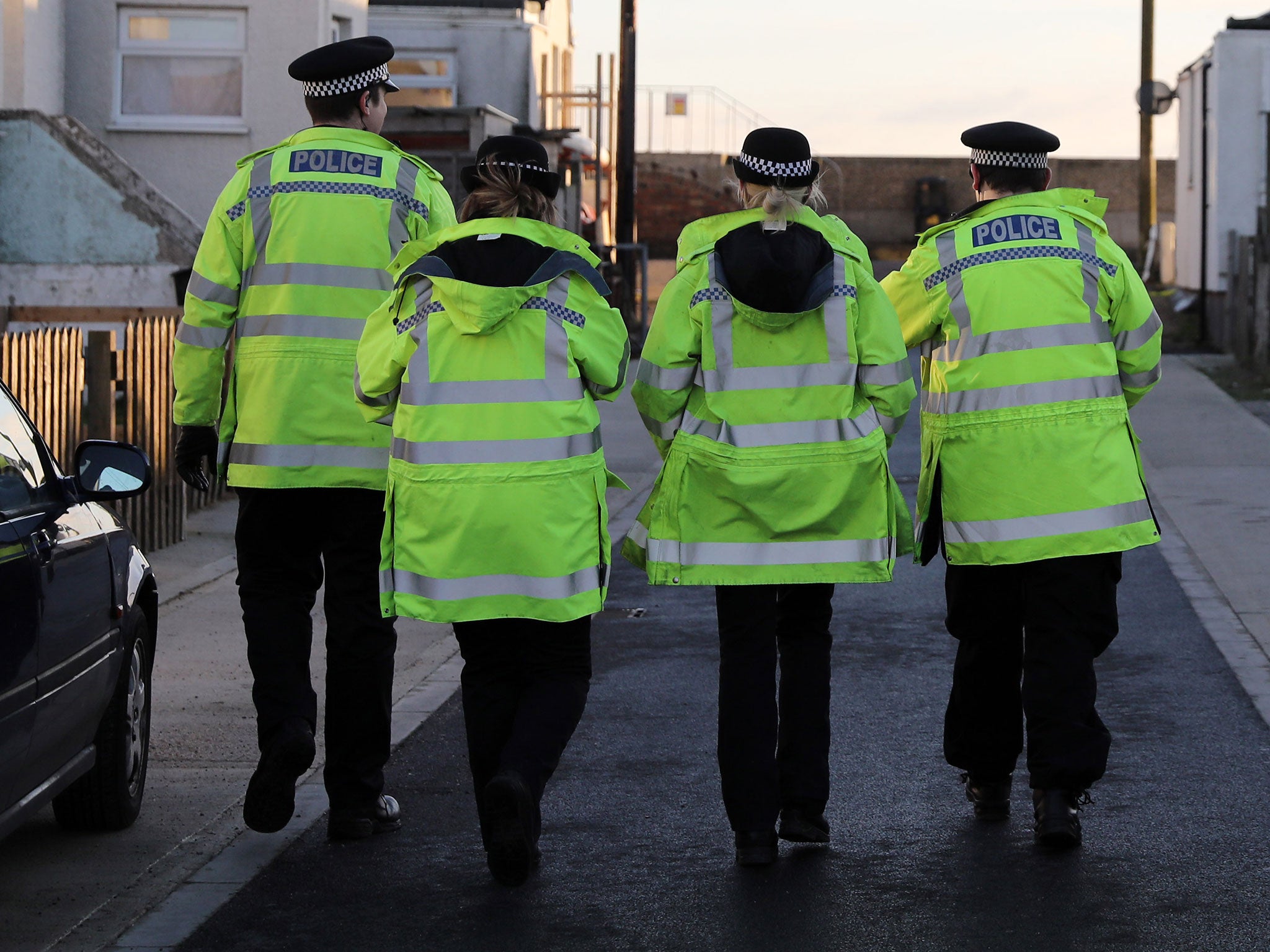British police ‘still institutionally racist’, senior officer admits as new recruitment strategy launched
Police chiefs launch new drive to make forces representative of communities they represent

British policing is still “institutionally racist”, a senior police officer has admitted while launching a drive to boost the number of recruits from minority groups.
Chief Constable Gareth Wilson, the national lead for diversity, equality and inclusion, told The Independent the service has “come on leaps and bounds” in recent years but there is more work left to do.
“If you use the definition in the Macpherson Report you could argue policing is institutionally racist but we’ve moved on significantly since then,” he added.
He was referring to the conclusions of an inquiry into the racist murder of black teenager Stephen Lawrence in 1993.
It defined institutional racism as the “collective failure of an organisation to provide an appropriate and professional service to people because of their colour, culture, or ethnic origin” through “unwitting” prejudice or ignorance that influences processes.
Mr Wilson argued that where racial disparity is seen in policing, like in the disproportionate targeting of black men in stop and search, it reflects disparity across factors including education, housing and employment.
“We deal with the consequences of disparity in other public services,” he added. “Policing has undergone a huge step change but that doesn’t mean we haven’t got a great deal of work to do.”
He hailed a new toolkit drawn up to increase minority recruitment as a “completely new approach” that aims to increase public confidence in police among all minority groups across race, religion, disability, gender and sexuality.
The strategy is based on independent research from the National Centre for Social Research (NatCen), which showed that police officers and staff felt nationwide process was “patchy and sporadic”, and depended too heavily on commitment by individual chiefs.
The National Police Chiefs’ Council (NPCC) said that although the number of female police officers and those from black, Asian and minority ethnic (Bame) origin are at a record high, they are still underrepresented compared to the communities they serve.
Its “toolkit” recommends the appointment of specific chief officers dedicated to increasing diversity “with the same level of commitment as critical incidents”.
It also proposes the use of targeted recruitment and “positive action” to seek out job candidates from underrepresented groups.
The NPCC also wants the 43 forces it represents across England and Wales to increase flexible working to take account of childcare commitments and religious events, and give unconscious bias training to recruitment and promotion panels.
Mr Wilson said it was an “operational imperative” to have representative police forces, able to overcome language barriers and barriers to cultural communities.
In a direct appeal to potential recruits, he added: “Policing is a fantastic occupation and the people I work with every day are really inclusive. They really do want a diverse workforce and I’d say go beyond the perception, come and see the reality.”
HM Inspectorate of Constabulary will scrutinise police forces’ performance against the strategy, and progress is being closely monitored by advocacy groups.
Tola Munro, president of the National Black Police Association, noted that there is no watchdog for policing and warned that “discrimination grievances and Bame disciplinary disparities remain to be addressed”.
“Our role will be to monitor the toolkit as a critical friend and to act as a watchdog where discrimination continues,” he added. “Additionally we will seek statutory powers to improve policing legitimacy for our Bame communities.”
The policing minister, Nick Hurd, said he was pleased to see commitment from chief officers.
“However, it is an uncomfortable truth that our police forces do not fully represent the communities they serve,” he added. “By recruiting from right across society, the police will ensure they retain the public’s confidence and attract the brightest and best talent that this country has to offer.”
